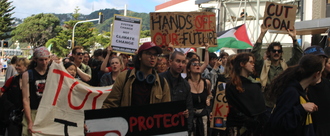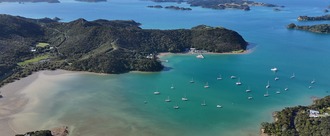-
Protect Our Community and Tamariki: Address Roaming and Dangerous Dogs in AhiparaOur Ahipara community should not have to live in fear of roaming dogs. My kids saw a dog being attacked right in front of them — it was violent, chaotic, and traumatic. No child should have to witness that, and no Council should accept it as normal. This is not about being anti-dog. It’s about keeping our community safe, ensuring people take responsibility for their pets, and preventing harm before it happens.462 of 500 SignaturesCreated by Tyrone Biddle
-
Golden Triangle by Train: Te Huia to TaurangaOver half of New Zealand’s population lives in the Golden Triangle, and it is one of the fastest-growing parts of the country — it makes sense to have a modern, safe and efficient train service between Auckland, Waikato and the Bay of Plenty. Te Huia is already showing how passenger rail can help people get to work, study, healthcare, and visit whānau without relying on long, expensive, and often dangerous road trips. Investing in passenger rail eases congestion, improves road safety, reduces emissions and supports regional growth and tourism. With major rail infrastructure already in place and the City Rail Link opening in 2026, now is the time to build on Te Huia’s foundations — not walk away from them.3,505 of 4,000 SignaturesCreated by The Future is Rail
-
Ban Fossil Fuel Ads and Sponsorships in Aotearoa.Fossil fuels are the biggest driver of climate change—and just like tobacco, they’re harming our health, our environment, and our future. Yet fossil fuel companies continue to run ads and sponsorships that mislead the public and delay climate action. It’s time to stop the greenwashing. Just as Aotearoa once led the world in banning tobacco advertising, we must now ban fossil fuel ads and sponsorships. Other countries like France, the Netherlands, and the UK are already doing it. Local councils in Australia have joined in too[1]. Here in Aotearoa, companies like Z Energy are under fire for deceptive climate marketing[2]. We can’t allow fossil fuel giants to shape the public narrative while continuing to pollute. We urge you to support a national ban on fossil fuel advertising and sponsorships. Join us in building a safer, healthier, climate-resilient Aotearoa. Please sign the petition and share it with your friends and family References [1] fossiladban.org/learn/ [2] www.consumer.org.nz/articles/z-energy-continues-the-business-of-greenwashing-as-its-emissions-rise326 of 400 SignaturesCreated by Comms Declare
-
Fix Auckland's Traffic!Why is this important? Auckland should be a city built for people, not for cars - no matter where you live everyone should be able to access great, affordable, and reliable public transport. Every Aucklander knows traffic is out of hand and only getting worse Aucklanders spend more than 80 hours a year in traffic on average[1]. It costs the city more than $2billion dollars a year in lost productivity. An estimated 2,247 premature deaths, 9,400 hospitalizations and 13,200 cases of childhood asthma come from vehicle emissions per year in Aotearoa[2]. Transport makes up 39% of Aotearoa's greenhouse gas emissions[3]. It's also expensive: $7,000 a year to maintain a car, and New Zealand has by some measures the highest car ownership in the world. As Auckland continues to grow it is important that we give people alternatives to car ownership. Trains, Buses and Ferries that are all well connected and affordable can make a huge difference. We know this because it happened before. Back in 1955 when the tram system still existed in Auckland, 58% of trips were made via public transport - now in 2025 it’s down to 5%. It is time to build cities for people and not for cars - sign this petition and together we can make a change! If it's there people use it: in 1955 when the tram system still existed in Auckland, 58% of trips were made by public transport. Now it's just 5%. 40% of commuters from the North shore now use the Northern Expressway buses. It is possible to build a city for people rather than cars. References 1 https://at.govt.nz/media/pqxhk3cn/auckland-transport-cost-of-congestion-white-paper.pdf 2 https://www.esr.cri.nz/media/edmf0i4c/esr-environmental-health-report-public-health-risks-transport-emissions.pdf 3 https://environment.govt.nz/publications/aotearoa-new-zealands-first-emissions-reduction-plan/transport/31 of 100 SignaturesCreated by Seqan George
-
Bring Back long-Distance Passenger Rail to TaranakiRestoring this vital rail link would benefit over 750,000 people by providing an affordable and accessible alternative to air travel and long-distance coaches, which older and disabled passengers often find inaccessible. It would reduce reliance on private vehicles, improving road safety. Reintroducing this service would boost regional economies, uplift tourism in one of New Zealand’s most beautiful and under-served regions, and build a more connected and equitable transport network for all.2,887 of 3,000 SignaturesCreated by Louise James
-
Keep Tokoroa Toi Ohomai OPENNo matter where we live in Aotearoa our communities need access to essential services, education and opportunities to grow and thrive. That includes Tokoroa and other small regional communities throughout the South Waikato. But as a result of this Government’s decisions Tokoroa’s Toi Ohomai campus is facing closure. The Toi Ohomai Institute of Technology has published a proposal to cut over 160 jobs which would lead to the purpose built campus in Tokoroa being closed. Toi Ohomai has said the proposal was in response to a Government expectation to become “financially viable”. Tokoroa has already faced the devastating blow of Kinleith Mill shutting down one of its plants with 150 people losing their jobs. Families have had to reevaluate their lives in the South Waikato, with many deciding to move out of the district for more job opportunities. Some have decided to stay, looking into retraining at Toi Ohomai or seeking employment in other areas in the district. The Toi Ohomai campus in Tokoroa is a beacon of light for those who otherwise wouldn't have the means to travel to continue tertiary education in Rotorua, Tauranga or Hamilton. The campus and its courses are an asset to all ages, from young high school graduates to adult learners looking to upskill or retrain. With new housing developments and the Maraetai Road Business Park build, there is a light at the end of the economic recovery tunnel for Tokoroa and the wider South Waikato. If Toi Ohomai remains open in Tokoroa, it has the potential to become a significant economic catalyst for local businesses and the recruitment and retention of young people in the district. If we lose Toi Ohomai in Tokoroa, opportunities for locals will once again become extremely limited and the wider community will be left with the burden to fill the gaps. To creatively and collaboratively invest in our local community and allow time for possibilities to flourish is to contribute to the growth and vibrancy of the South Waikato and provide hope to future generations. "Patience is bitter, but its fruit is sweet". Sign this petition to signal to Toi Ohomai and the government that the Tokoroa community deserves better and will not stand by as our opportunities for youth and future generations are shortsightedly taken away. Let’s show Toi Ohomai leadership that the Tokoroa campus is a valued asset in the community and it must stay open.246 of 300 SignaturesCreated by Elvisa Van Der Leden
-
Restore The Southerner TrainA restored Southerner train route offers affordable transport for 750,000 SI residents, bridging gaps where air is too costly for students/low-income, coaches inaccessible for disabled/elderly, and car travel unsafe/expensive. This boosts regional economic development and tourism. Recent rail investments, like Hillside Workshops, new ferries, and Inland Ports, confirm rail's viability in the South Island.6,412 of 7,000 SignaturesCreated by Patrick Rooney

-
Keep Aotearoa Incinerator Free!Why we want Aotearoa to stay incinerator-free Incinerators are a serious health hazard Incinerators release highly toxic dioxins, heavy metals, and PFAS, among other pollutants. These are some of the most toxic substances known to science, and can cause things like cancer, damage to the nervous system and organs, birth defects and infertility! Would you want to be breathing, drinking and eating this stuff? Incinerators still need landfills Incinerators do not stop the need for landfills. The ash, which can be as much as a third of the total amount of rubbish that went in, has to be landfilled and handled as hazardous waste. Along with that, some stuff simply can't be burnt ever because of its toxicity, or because the material simply isn’t burnable. Incinerators are an economic loser The hype around incinerators suggests they will provide lots of jobs and economic benefits to the communities they are built in. But, for every job an incinerator provides, activities that actually stop the waste before it’s created - like recycling, composting, reuse and repair - provide hundreds more jobs and local economic activity. Incinerators pollute air, land and water Even the most sophisticated modern incinerators release harmful substances out of their chimneys and into the ash and wastewater, leaving a toxic legacy for those spaces and ecosystems for generations to come. The toxic ash has to go somewhere - mostly to a specialised landfill, where the pollutants can leach out. Incinerators are a disaster for the climate In 2024 the BBC found that incineration is just as bad for the climate as coal power, and five times more polluting than the average unit of UK energy. New Zealand reports have also found that incinerators will spew out far more carbon than landfills, especially as more organic waste gets composted instead of landfilled to meet New Zealand’s methane reduction targets. Incinerators keep the waste train going Incinerators need 20 to 30 years of burning as much rubbish as they possibly can to justify the hundreds of millions of dollars needed to build and run them. Imagine if all that money was invested in smart zero waste projects instead? What a waste! Would you want a dirty incinerator in your community? For a future where the earth's resources are valued, where people have opportunities to do meaningful zero waste work, and where we know our air, water, soils and food is safe… Let's Keep Aotearoa Incinerator Free! FAQ Should we follow Europe’s example? Europe’s incinerators are not what they’re cracked up to be, and are fast becoming yesterday’s technology. These days Europe is retreating from burning rubbish because it is harming their climate and waste reduction, reuse and recycling goals. For example, Denmark has invested heavily in incinerators but now generates more waste per capita than any other country in Europe. They recently announced a plan to close down 30% of the country's incinerators in order to get their greenhouse gas emissions and waste generation under control. Wales and Scotland have also banned any new incinerators being built, and England is considering it too. And the EU no longer considers incinerators eligible for climate-friendly investment. What about technologies with fancy names like pyrolysis and gasification? Despite all the hype, these technologies have a horrendous track record of failure across Europe and elsewhere. They might be OK for clean, organic materials like forestry slash, but add anything else and they create toxins as bad or worse than incinerators. Aren’t incinerators generating much needed power? While companies like to sell these technologies as ‘waste to energy’, they not only produce dirty, non-renewable energy, but they are extremely inefficient. A study from 2023 found that European incinerators are only able to capture a small proportion of the energy they burn - roughly 25% at best, compared to around 35% for coal power, and 55% for natural gas. Zero waste - is it really achievable? Absolutely! Zero waste is not just about the literal goal of achieving ‘zero’; it's as much a practical toolkit and guidebook to drastically reducing waste across our communities starting with preventing the creation of waste in the first place. It is well-established, with an extensive evidence-base and a huge range of real life options already being implemented in communities all over the world right now. Check out the mahi of groups like Para Kore, Zero Waste Aotearoa, Zero Waste Europe, and GAIA for some inspiration!544 of 600 SignaturesCreated by Zero Waste Aotearoa
-
Oneone ki te WhenuaOn the 5th of May 2025, Ngati Oneone activated 'Oneone ki te whenua' 185 years to the day that our tipuna Rawiri Te Eke Tu signed 'ae ra' on Te Tiriti o Waitangi. 80 years later, the whenua of his hapu was taken piece by piece in the name of public works and harbour development. Within 10 years Ngati Oneone was displaced and homeless, a people without whenua. Today the Gisborne District Council, Trust Tairawhiti and Port Eastland are the owners of what remains of that whenua. Port Eastland has offered a small piece back with conditions. Those conditions continue to oppress our right as a hapu to exercise our Tino Rangatiratanga, offering land and in return silencing our voice regarding future port development, RMA applications and the risk of being fined if we were to ever oppose them. 100 years removed from our whenua, enough is enough! Ngati Oneone Hapu has lived, bred and died on our tribal lands from Pouawa in the North of Gisborne to Te Toka a Taiau, Turanganui awa, including the lands known as Kaiti/Kai Iti/Puhi Kai Iti. In 1852 our first Pa (on Hirini St) was built. In 1885 the Harbour Board was enabled to carry out major works under the Harbour Board Act, in the area: • The blowing up of Te Toka a Taiau • The blowing up of Puakaiwai/Punaariki/Tuaiti Is • The removal of Te Poho o Rawiri Pa and tribal housing Under the Public Works Act, significant lands were taken, here to name a few: • Titirangi Maunga (parcels of land sold to pakeha individuals and corporations) • Rakau a Ue Urupa (roadway created, urupa desecrated) • Turanganui awa - Rua Koura (continued degradation) • Ruatanuika maara/gardens (destroyed) • Te Umu a Tawhiwhi (destroyed) • Te Waiu o Hamoterangi (destroyed) • Te Pioi Pa (destroyed) • Puhi Kai Iti - reefs (destroyed) • Roadway put through Rakau a Ue Urupa The raupatu of our lands has alienated Ngati Oneone occupation and cultivation in these areas, destroyed puna wai, wahi tapu and urupa. Atrocities on Ngati Oneone hapu, whenua and wai are actions that have been applied and imposed on our hapu for the past 100 years. In all those years, Ngati Oneone have not been treated in Fairness, Dignity or Human Rights. This cannot be the responsibility of the fourth generation to seek redress!6,488 of 7,000 SignaturesCreated by Te Owaina Gibson
-
Lets get more refill systems in supermarkets throughout AotearoaWe need to ensure that our world is sustainable for future generations. We want to see refillable systems in every supermarket — they are a necessary step to revitalise ecosystems, reduce plastic pollution, and protect our health and planet. Once upon a time, we shopped without single-use plastic. Milk came in glass bottles. Groceries were weighed and packed in paper or reusable bags. But somewhere along the way, we traded that in for convenience — and now, our planet and future generations are paying the price. Plastic pollution breaks down into microplastics that are now found in our oceans, drinking water, and even human blood. It harms wildlife, threatens biodiversity, and contributes to global warming through emissions from plastic production and waste. (UNEP, 2023) Other countries have shown that a better way is possible. In Germany, the Pfand bottle deposit system has drastically reduced beverage container litter and increased recycling rates to over 98%. Before it was introduced, plastic bottle waste was piling up in landfills and nature. Now, reusable glass and plastic bottles can be returned, cleaned, and refilled — cutting down plastic production and pollution. (European Commission, 2021) So why not New Zealand? With support from government and supermarkets, and help from businesses like Chia Sisters — who are already looking for low-waste solutions — we can bring refillable systems back. This isn’t just about packaging. It’s about healing our planet, protecting our biodiversity, and giving future generations a cleaner, fairer world. This petition is calling for real, practical action — not more greenwashing. Sign now to help New Zealand take action on refillable, low-waste systems. Who Are We? We’re a group of youth from Earthminds (https://earthminds.org/) who care about waste, the planet, and our future. We’ve seen the damage plastic is doing — and we know refill systems are part of the solution. Here's an introductory clip that explains our programme.934 of 1,000 SignaturesCreated by Micol Aristarco
-
VUW: Divest from Fossil FuelsIn 2014, VUW promised to divest from fossil fuels. The Vice Chancellor of Te Herenga Waka announced VUWs “ethical investment stance” and pledged to divest $650,000 invested in fossil fuels. A decade later, evidence reveals that the Foundation still holds significant investments in fossil fuels through third-party investment managers. The 2014 commitment was clearly a false promise. The world that we wish to create is one of climate justice: where communities across the world live and thrive without the threat of flooding or drought, where our needs can be met through sustainable means, and where we can enjoy, without exploitation, the ecosystems that support human life. This future is created by investing in renewable energy and sustainable industries, not fossil fuels. The Foundation should give weight to earth scientists’ “final warning”that “humanity faces ‘devastating domino effects’ including mass displacement and financial ruin” as the planet warms. The UN states that the “world is on the edge of a climate abyss”, and ecologists have said that unless we change course, ecosystem collapse is ‘inevitable’. ExxonMobile, (one of the companies in VUW’s investment portfolio) has known about the devastating effects of fossil fuels since the 1950’s and admitted to systematically undermining the efforts of climate scientists. There are no excuses. Investment in fossil fuels in 2025 is unjustifiable and should be abandoned immediately. With this in mind, we make the following demands of Te Herenga Waka Victoria University and the Foundation board: 1. Disclose the amount of money the Foundation has invested in companies involved in fossil fuel production and distribution. The Foundation has already disclosed their fund managers, one of which oversees the fund “Schroder Sustainable Global Core PIE Fund (Hedged)”. This is of primary concern. According to Mindful Money this fund contains 6.45% fossil fuel companies, including climate criminals such as ExxonMobil and Shell. With the foundation trust overseeing over $100M, dirty investments could make up millions of their portfolio. The VUW foundation must be transparent as this is the starting point for accountability. 2. Divest all money away from companies involved in fossil fuels. The Foundation’s divestment from Israeli government bonds in 2024 demonstrates that making changes to their investment portfolio is possible. We urge the Foundation to take the same rapid action and divest from fossil fuels. 3. Implement a specific exclusion policy with zero tolerance for fossil fuel investments. The Statement of Investment Policy Objectives (SIPO) that governs Foundation investments has failed to prevent unethical investments and can no longer be relied upon. The Board of Trustees must implement a policy to ensure that the Foundation permanently divests from fossil fuels, both directly and indirectly. VUW must follow through with its original pledge and prevent any money being placed into fossil fuel companies again. Organisations signed on: • Te Aka Tauira—Victoria University of Wellington Students’ Association • Ngāi Tauira—Te Herenga Waka-VUW Māori Students’ Association • Climate Clinic Victoria University of Wellington • 350 Aotearoa • Climate Liberation Aotearoa • Oil Free Wellington • Peace Action Wellington • VUW Students for Wellbeing Economy870 of 1,000 SignaturesCreated by Climate Action & Resistance VUW
-
Protect Waipiro Bay: Do not fast-track approve the proposed 200–250 Berth MarinaWhat are some of the impacts of the proposed development? Ultimately, this development must be stopped. A project of this scale—with serious cultural, ecological, and social implications—requires transparent, evidence-based decision-making that respects both the environment and the communities who call this place home. The proposed marina would cause irreversible damage: • To the Treaty partnership between the government, mana whenua and hapū • Destroying areas of cultural harvest significance • Eliminating native wildlife habitat, including that of high-risk species • Altering the ecological and visual landscape of Waipiro Bay • Privatising 9 hectares of public marine space • Extinguishing customary food-gathering areas Shockingly, the application lacks basic environmental assessments, including: • An Ecological Survey • A Hydrology Survey • A Cultural Impact Assessment • A robust Assessment of Environmental Effects (AEE) • Robust community input and engagement Waipiro Bay is not just water—it is our taonga, a source of identity, sustenance, and intergenerational connection. We cannot protect our culture, pataka kai, and wildlife without proper evidence and an inclusive process. This development must return to the proper consent pathway, so the voices of the Bay of Islands are heard. To our community: Let’s stand together to protect our waters, kai sources, wildlife, and future. Sign the petition to stop this harmful development and safeguard Waipiro Bay for generations to come. What is the proposal? A local family with a commercial arm has proposed to build a 250+ berth marina. This marina is intended to service a wide range of vessel sizes. The proposal claims that the marina will benefit the public by: • Reducing traffic at Te Uenga Boat Ramp • Providing potential key utilities (note – these are already available at the Opua marina); • Providing retail services. In summary, the proposal appears to provide mere convenience for a small portion of the community and does not provide a significant benefit at a regional or national level. What is required to approve Fast Track? Under the Fast-Track Approvals Act, the following considerations are made when determining whether to approve fast track of a consent application: • the project is an infrastructure or development project that would have significant regional or national benefits; and • referring the project to the fast-track approvals process – • would facilitate the project by enabling it to be processed in a timely and cost-effective manner; and • is unlikely to materially affect the efficient operation of the fast-track approvals process. In considering whether to refer the application to the fast-track approvals process, the relevant Minister must consider the following: • Whether the project would be inconsistent with a Treaty settlement or a joint management agreement; • whether it would be better dealt with under other legislation; • whether the project has significant adverse effects on the environment; • whether the project area includes land that is considered necessary for a Treaty settlement process. Because Waipiro Bay is more than just a piece of coastline—it’s part of who we are. Here’s why it matters: • Waipiro Bay is a taonga, home to rich marine life, cultural traditions, and a close-knit community. • The Eastern Bay of Islands have been kept free of large-scale commercial development to preserve its scenic beauty and natural value. Maintaining its natural integrity is the best long-term economic and ecological value to the public. • The proposed marina would privatise public water, destroy customary food-gathering areas, and alter the bay forever. • The application bypasses due process, silencing local voices, ignoring Māori rights, and skipping essential environmental protections. • We have the evidence: demand for marina berths is low, and this project offers no proven regional or national benefit. • The sharp rise in boat density will further strain the already over-saturated Eastern Bay of Islands. • The economic benefits will go solely to the developers, with no meaningful revenue such as rates going to Council or the public. Instead, the marina will increase infrastructure costs, adding pressure to already limited Council resources. References https://environment.govt.nz/acts-and-regulations/acts/fast-track-approvals/ https://www.dockland5.co.nz/ https://www.sail-world.com/news/268425/Okara-Marina-Berths-now-available https://data-nrcgis.opendata.arcgis.com/datasets/aquaculture-exclusion-areas-5 https://www.whangareimarina.com/okara-marina https://www.boaties.co.nz/nearest/marinas https://www.boaties.co.nz/marinas/northland https://www.nrc.govt.nz/maritime/moorings/moorings-for-sale-or-rent-listings/ https://www.legislation.govt.nz/act/public/2011/0003/latest/DLM3597250.html https://www.legislation.govt.nz/act/public/2024/0056/latest/LMS943260.html https://www.epa.govt.nz/fast-track-consenting/fast-track-approvals-act-2024/ https://www.nrc.govt.nz/resource-library-summary/plans-and-policies/moorings-and-marinas-strategy/moorings-and-marinas-strategy/ https://www.legislation.govt.nz/act/public/1991/0069/latest/DLM230265.html https://www.bayofislandsmarina.co.nz/superyacht-mooring https://www.xn--morilandcourt-wqb.govt.nz/en MAC-01-01-076: Ngāti Kuta and Patukeha ki Te Rawhiti/ CIV-2017-485-321.14,912 of 15,000 SignaturesCreated by BOI Ipipiri Community

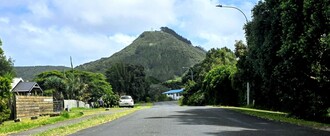
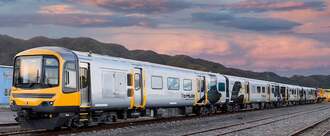
.png)
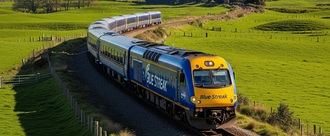
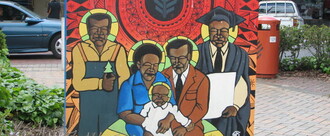


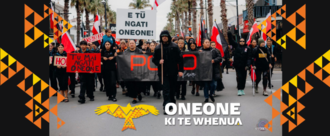.png)
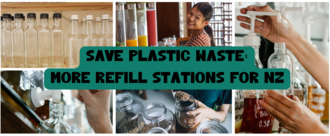%20(1).png)
